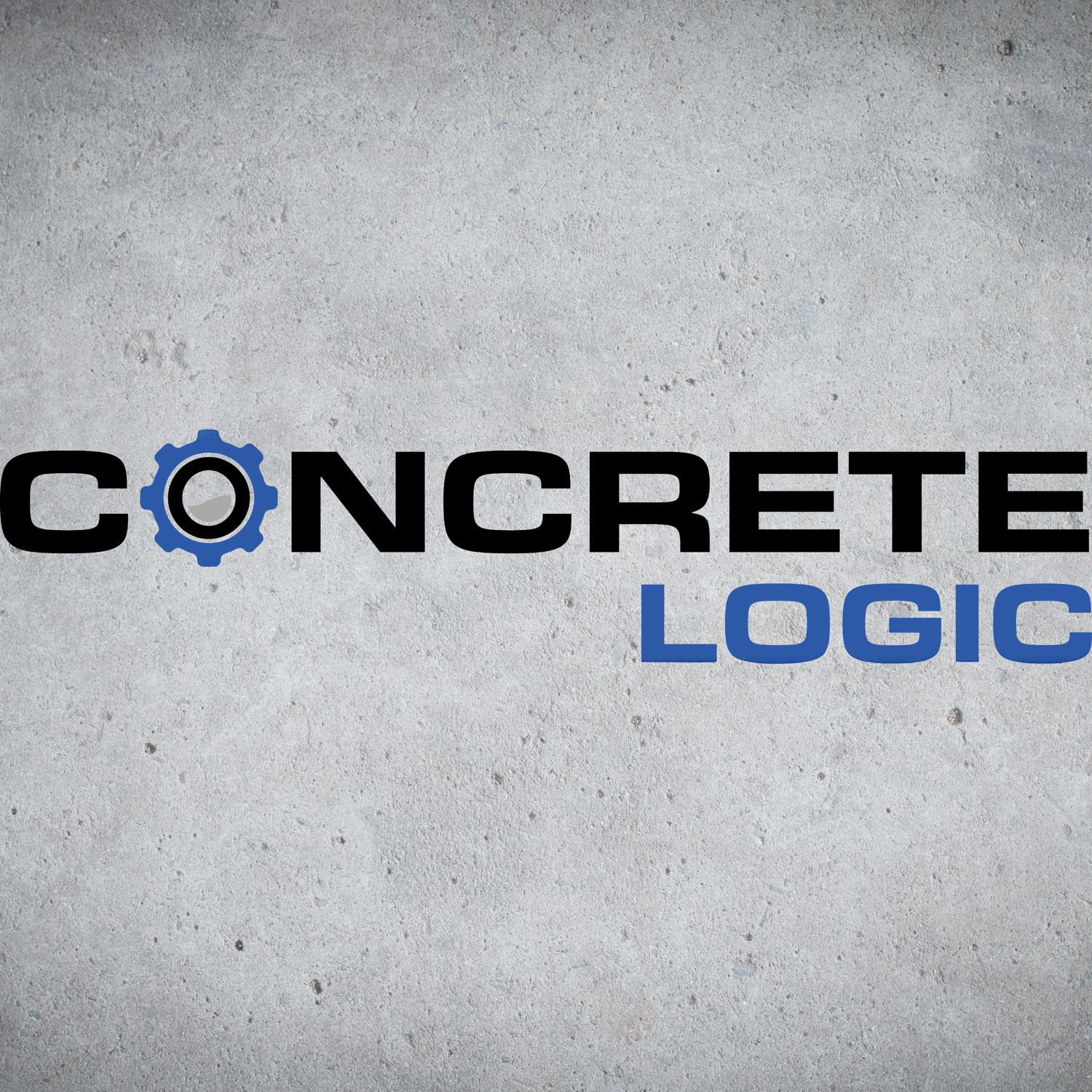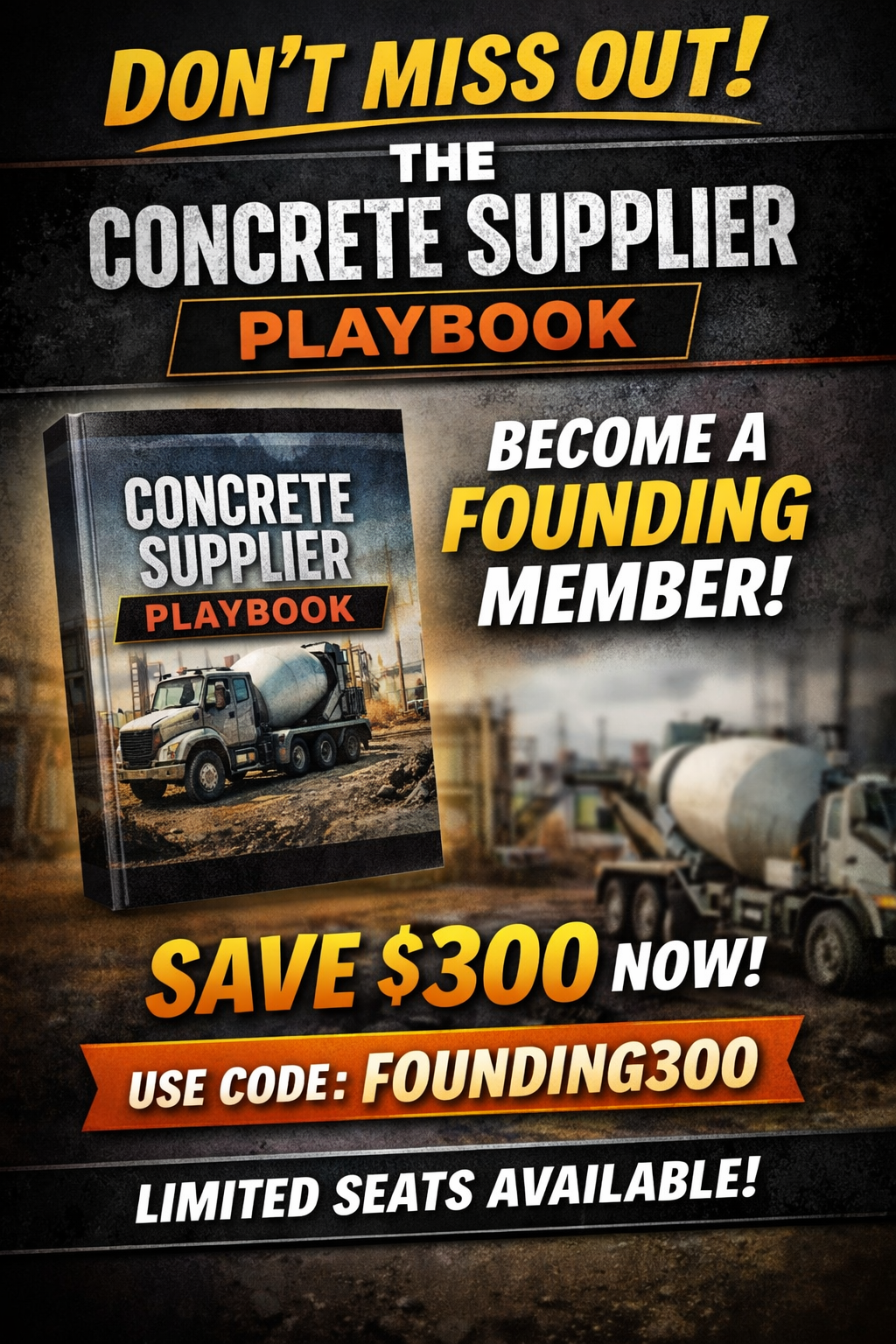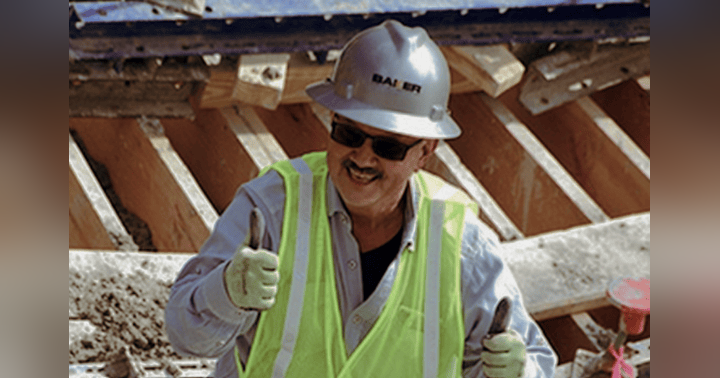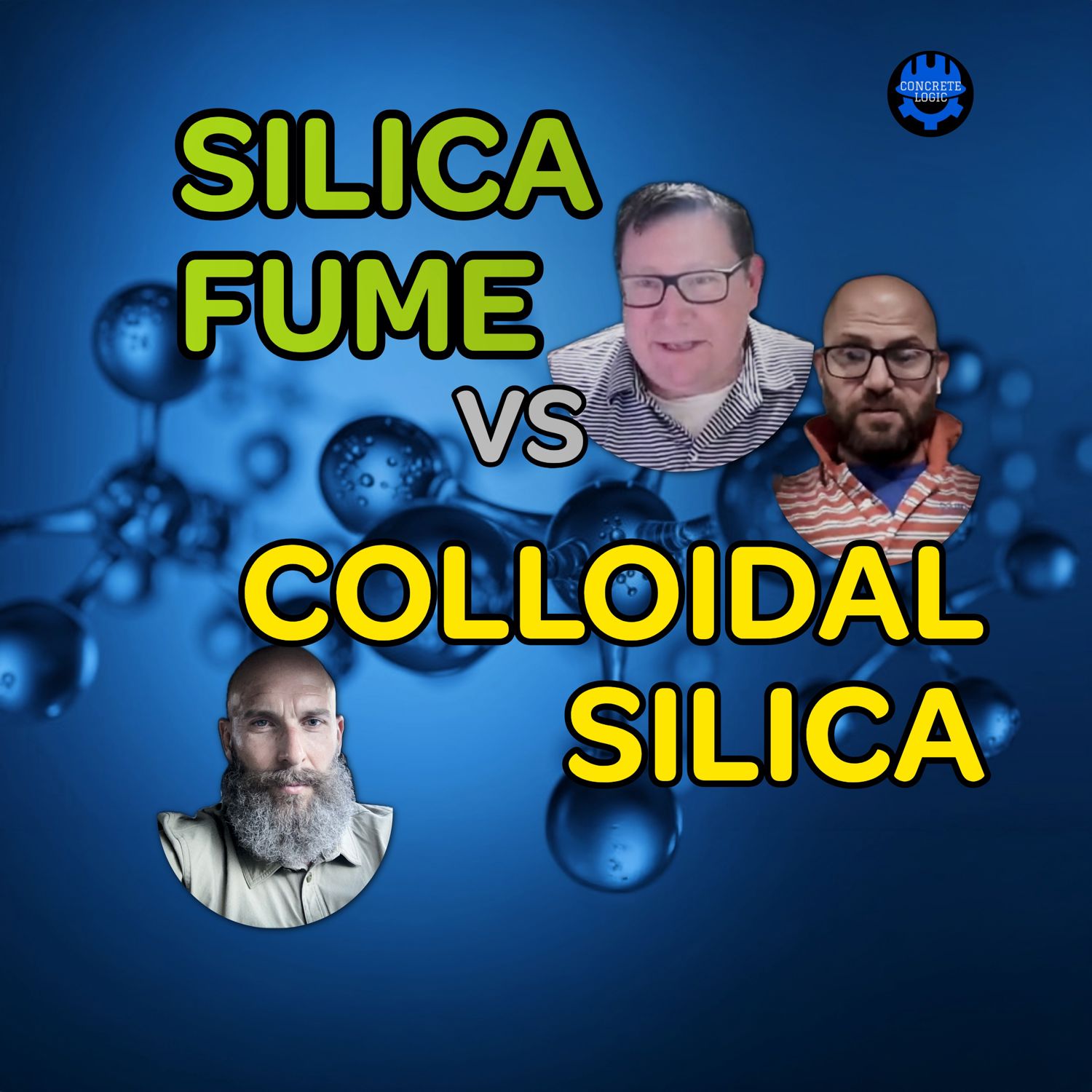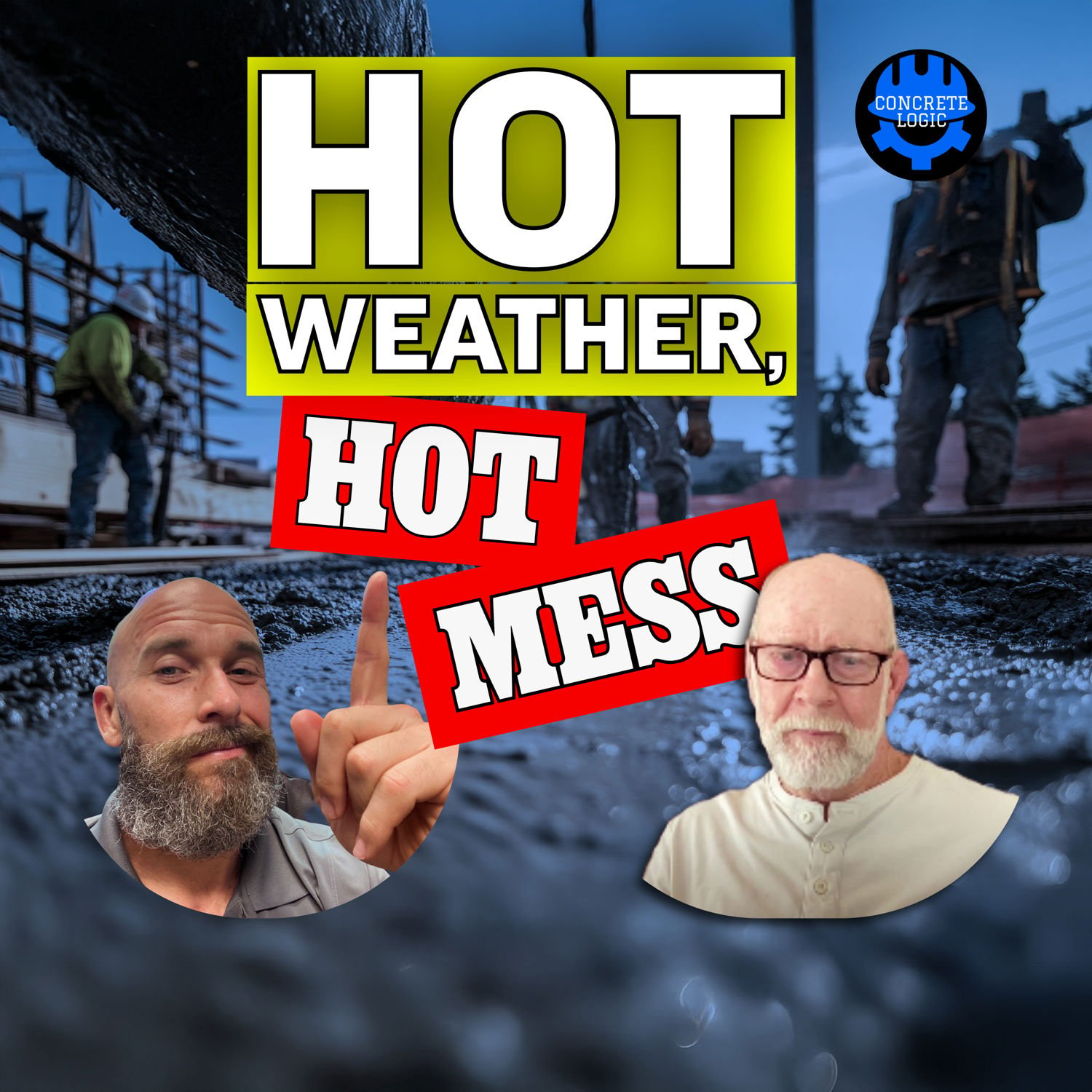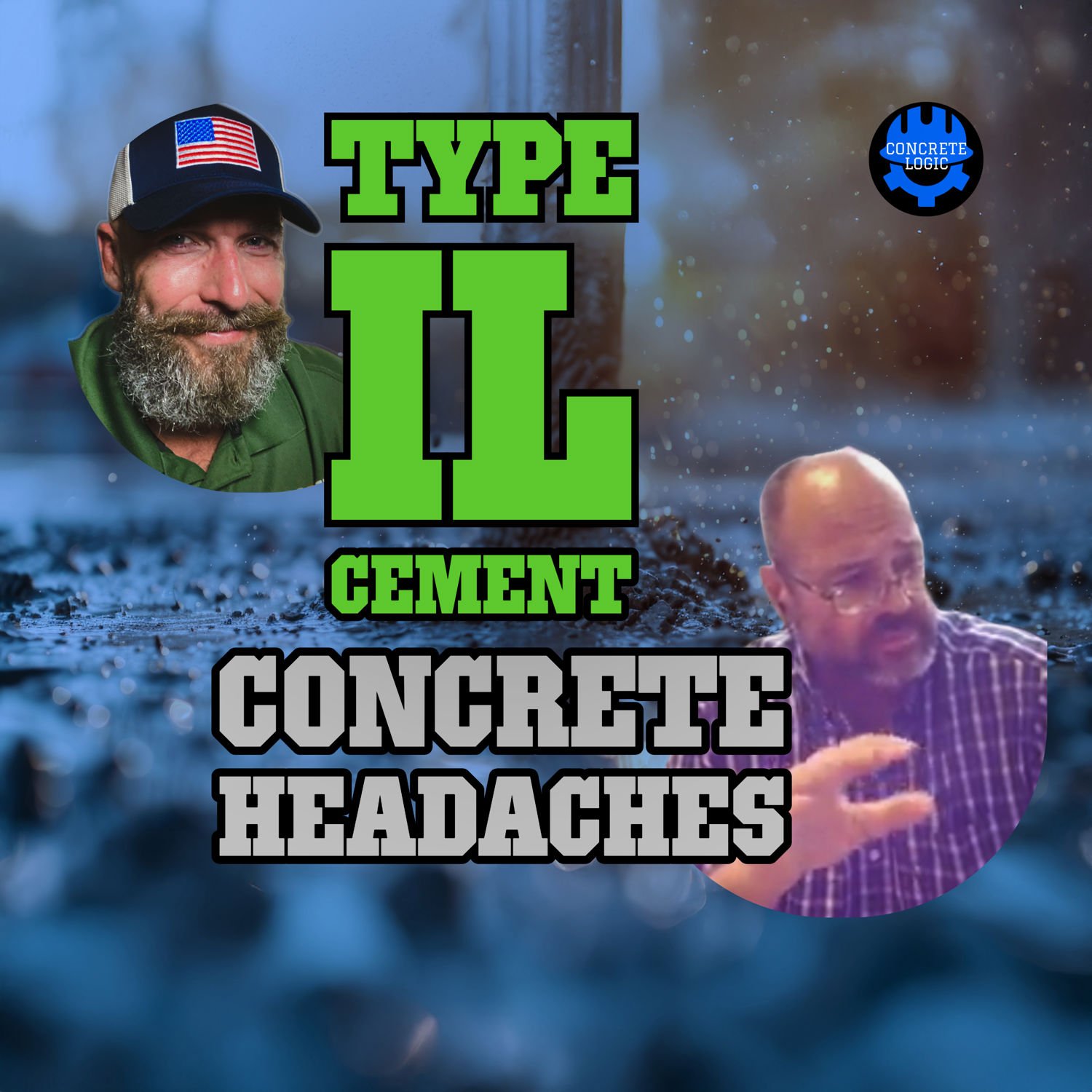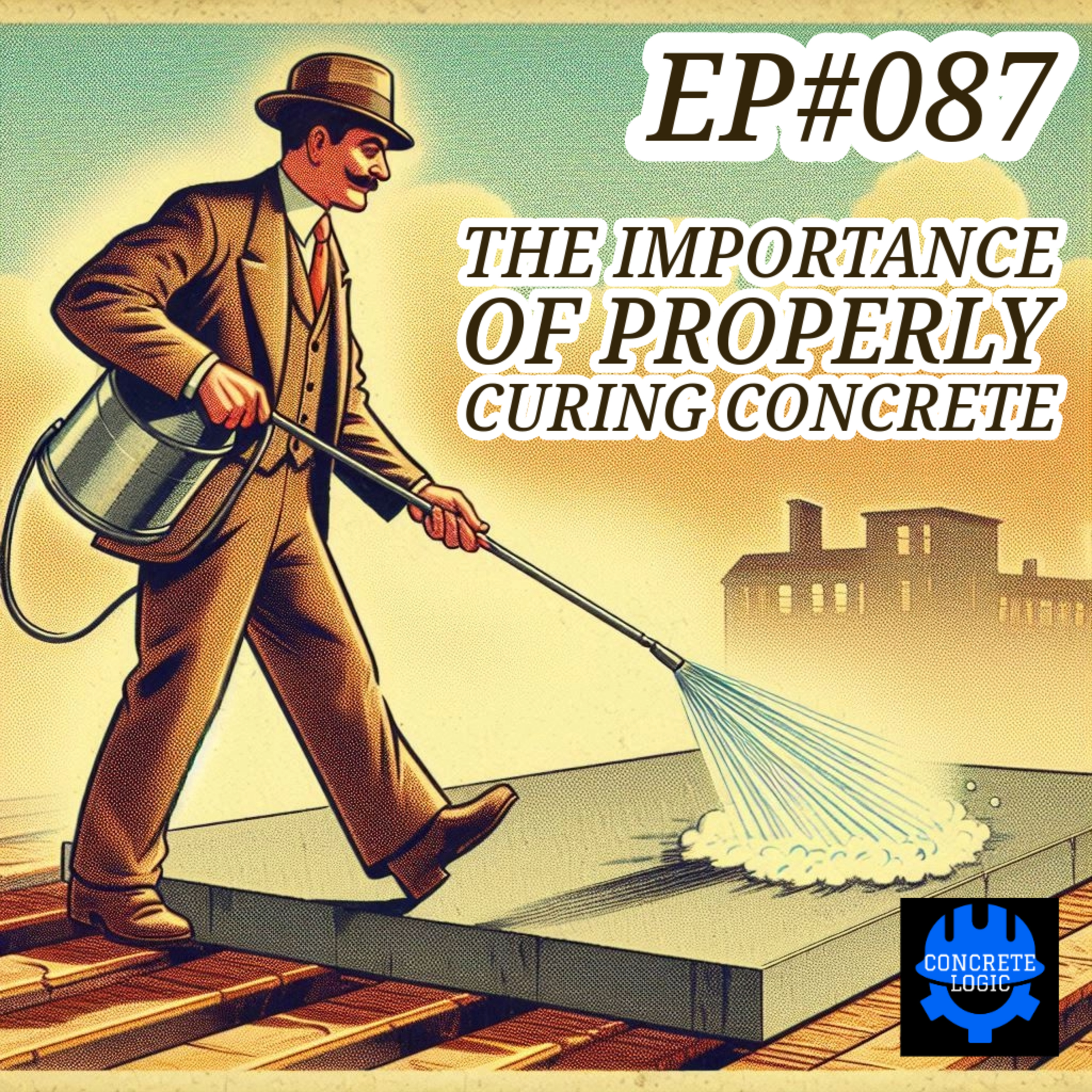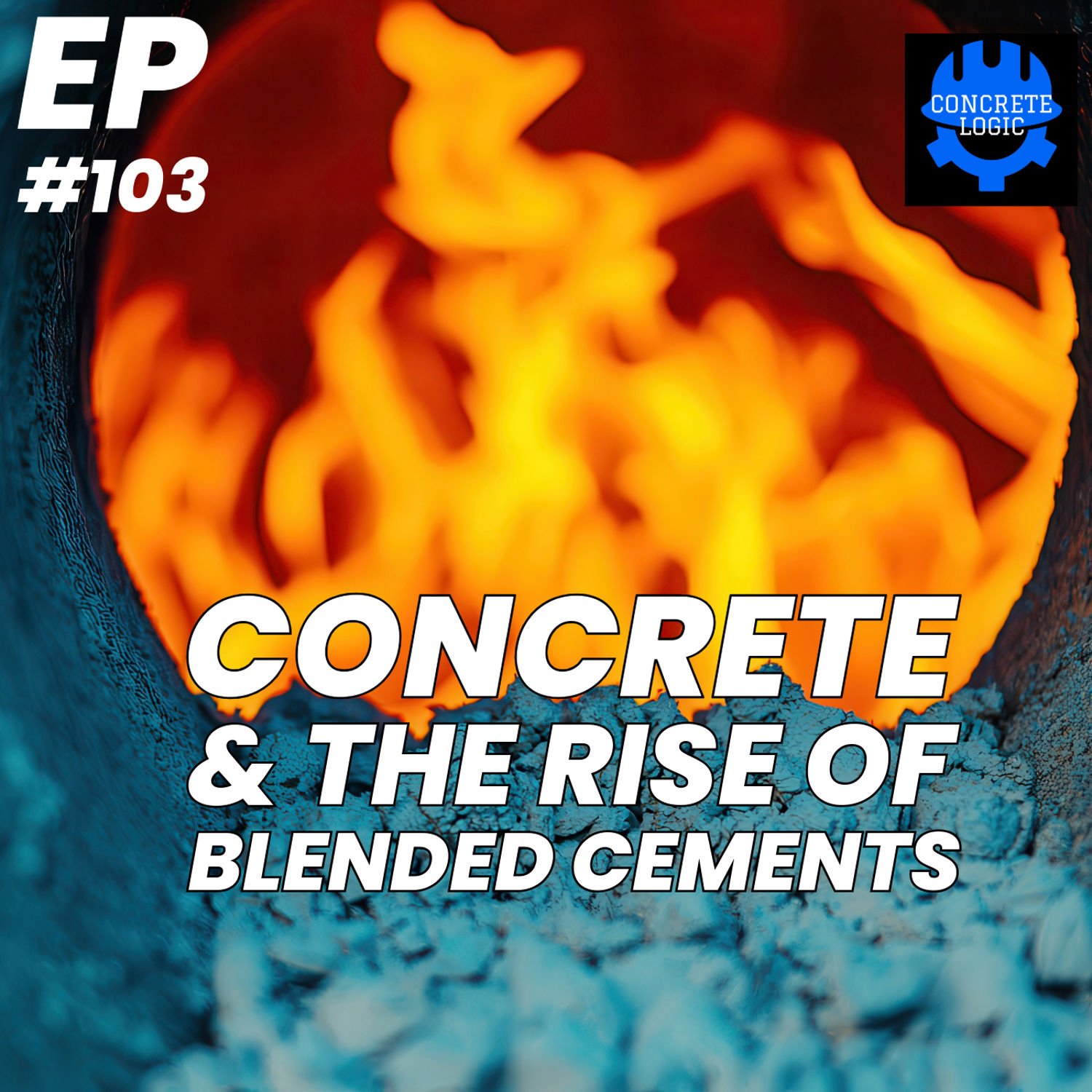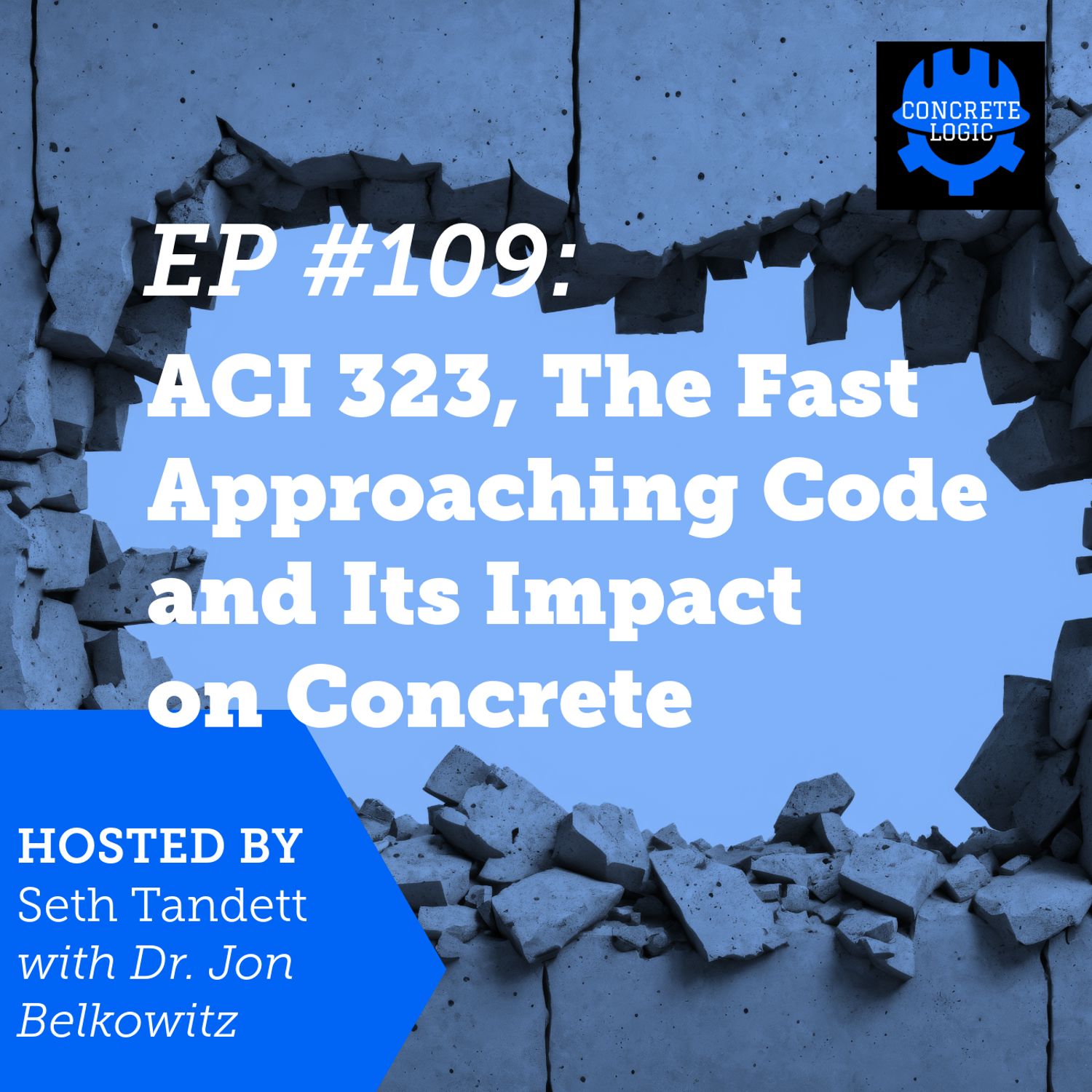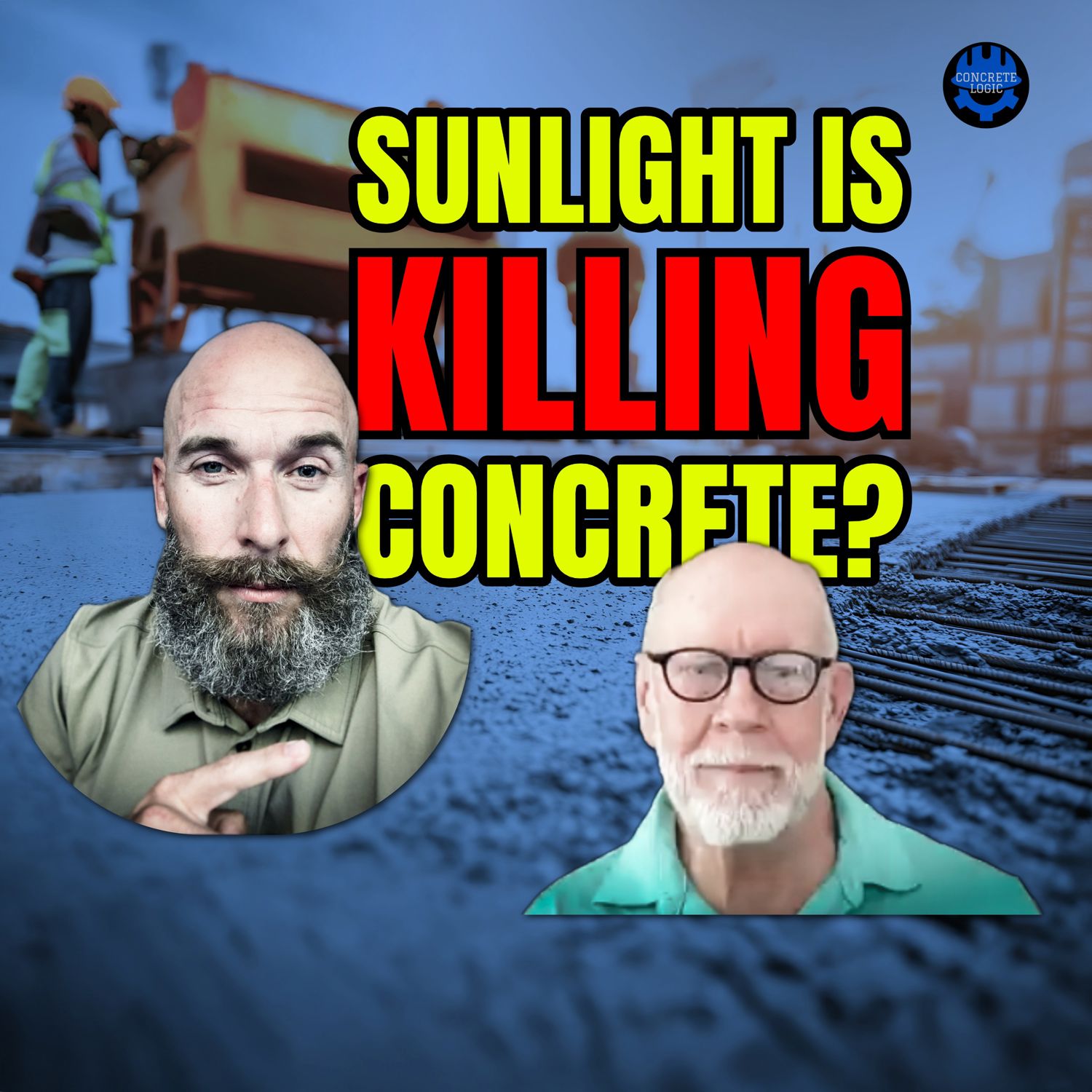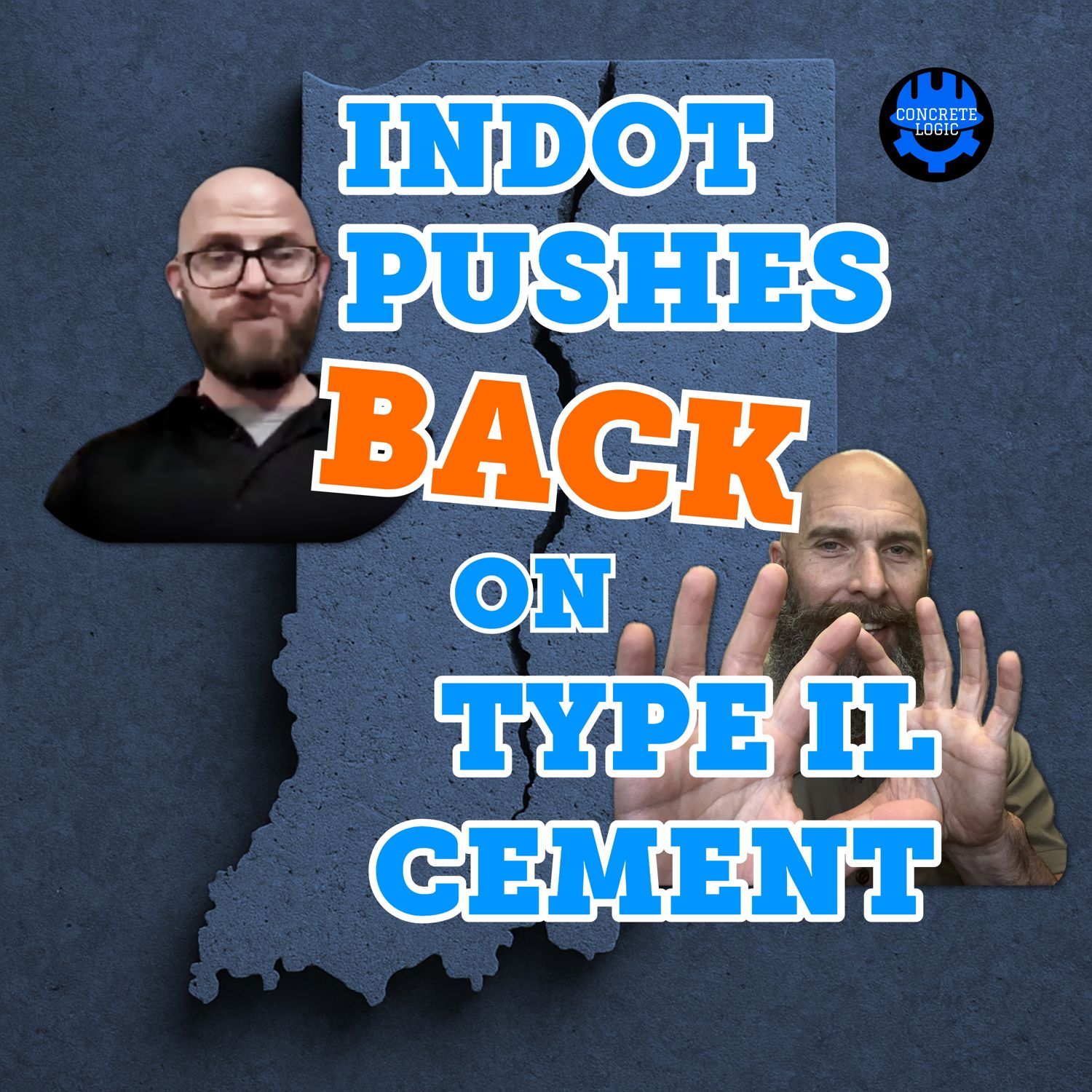EP #140: Building the #1 Concrete Contractor in America: Grit, Growth & 50+ Years of Lessons
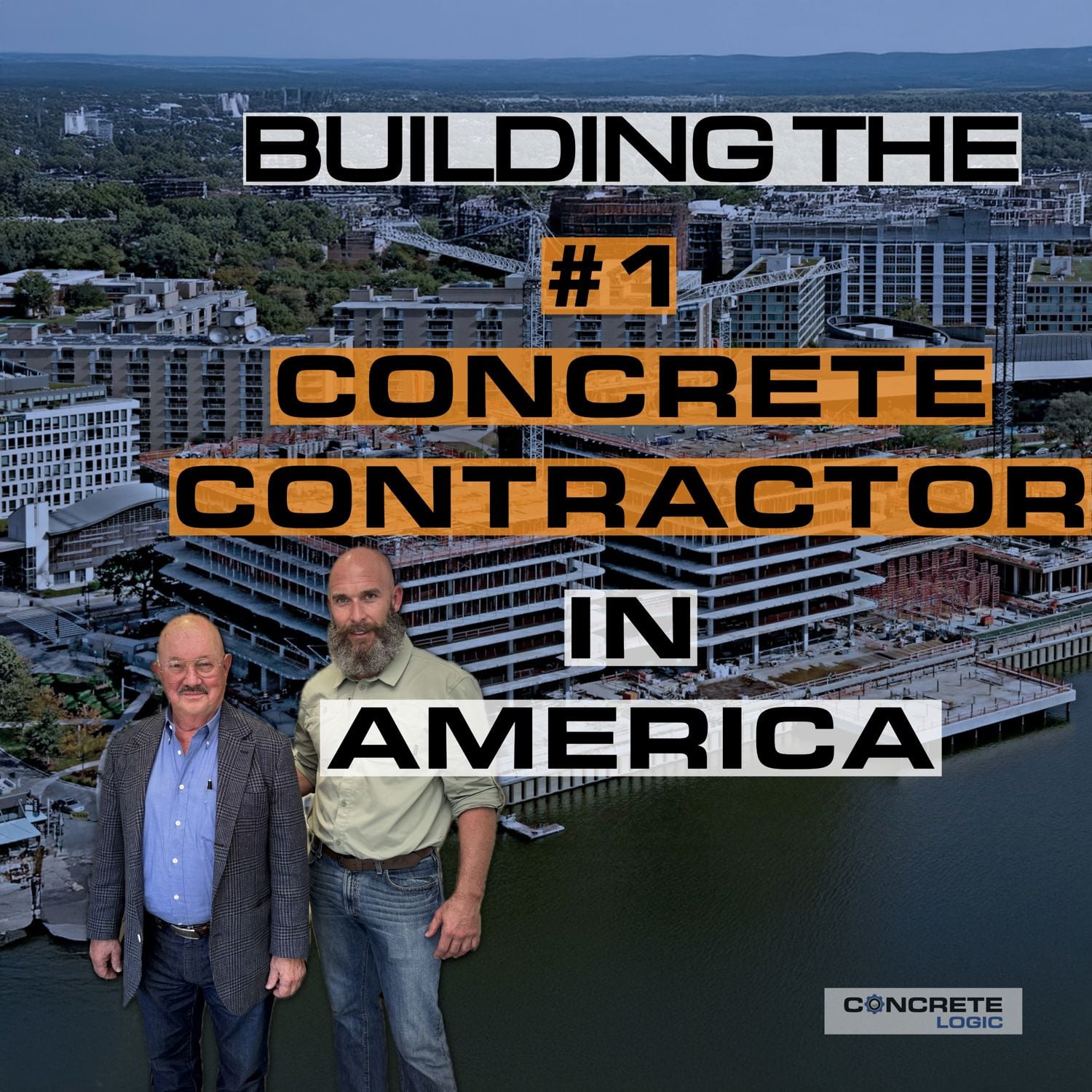
Everyone in the concrete world knows the Baker name, but very few know the real story.
This episode finally gets it on record. Dan Baker walks through how the company started with three brothers, $500, and a truck that needed a hill to start — and how it grew into ENR’s #1 concrete contractor in America.
Dan lays out the moves, the mistakes, the risks, and the mindset shifts required to grow from residential slabs to major industrial, stadiums, and billion-dollar work. If you're trying to scale a concrete company, this episode is a roadmap.
WHAT YOU’LL LEARN
- What allowed Baker to jump from residential flatwork to commercial and industrial work
- The key moment that changed the company’s trajectory forever
- Why the first stadium project lost seven figures — and what Dan did next
- When to hire someone smarter than you (and why you may have to pay them more than yourself)
- Why Dan says contractors must “either know or should have known” when things go wrong
- How to build a reputation that actually carries you into bigger work
CHAPTERS
00:00 – Why this is the most requested interview in show history
01:24 – The real origins of Baker Concrete in 1968
09:59 – Learning concrete the hard way (and the right way)
17:40 – The A-frame job that changed everything
23:27 – Turner hands Baker the total-package blueprint
26:50 – What it truly takes to “cross over” in this industry
37:25 – Losing a million dollars on a stadium — and still going after the Bengals
42:50 – Becoming (and staying) #1
48:11 – Dan explains the “Amish Marines” mindset
50:17 – People. Honor. Grit. Baker’s core in one sentence.
GUEST INFO
Dan Baker
Founder, Baker Concrete Construction
Bio: https://www.concretelogicpodcast.com/guests/daniel-l-baker/
Company: Baker Construction Enterprises
Website: https://www.bakerconstruction.com
SUPPORT THE PODCAST
If you learned something from this conversation — consider donating. It keeps the show independent and education-first: https://www.concretelogicpodcast.com/support/
PODCAST PARTNERS
INTELLIGENT CONCRETE
Want advanced concrete training, petrography education, mix-design science, and materials research?
Visit Intelligent Concrete at: www.concretelogicpodcast.com/intelligent-concrete
CONCRETE LOGIC ACADEMY
Early access to episodes, PDH courses, technical deep-dives, and a place to sharpen your concrete knowledge:
https://www.concretelogicacademy.com
KUIU
KUIU gear link (first orders get 15% off): www.concretelogicpodcast.com/KUIU
CREDITS
Produced by: Jodi Tandett & Concrete Logic Media
Music by: Mike Dunton — https://www.mdunton.com
CONNECT WITH US
Host: Seth Tandett
LinkedIn: https://www.linkedin.com/in/sethtandett/
YouTube: https://www.youtube.com/@concretelogicpodcast
Website: https://www.concretelogicpodcast.com
Like, subscribe, comment, and share the show. Let’s keep it concrete.
Seth (00:00)
Welcome to another episode of the Concrete Logic Podcast. And today I have a special guest, ⁓ a guest that's been requested numerous times. I told him, just because I work for Baker doesn't mean I get direct access to Dan Baker. But Dan Baker is joining us today, founder of Baker Concrete Construction. ⁓ Baker was just recently... ⁓
again for the 17th year in a row named the largest concrete contractor in the nation ⁓ by ENR. ⁓ we're Baker, I like to say we because I work for Baker. We have 25 offices over the country and now I said 8,000 employees but Dan corrected me and said it's probably a little bit more than 8,000 employees now, coworkers we call them. Yes, sir.
⁓ But Dan, thank you for joining me on the show today. been excited about ever since you said earlier this year you would do it. I've been excited about having this discussion with you.
Dan Baker (01:07)
Well, hopefully we'll have a little fun. Yeah. It's not fun every day, it's been a little rugged now and then, but most of the time in order to stay around as long as I have personally and the company has, it's got to be some fun or you wouldn't stay.
Seth (01:24)
Yeah, yeah, yeah. So 1968. This Baker's been around since. Yes, sir. ⁓ Well, I believe it or not, a year and a half ago I had a listener call in. I have a, ⁓ on the Concrete Logic Podcast website there's a way for someone to click on a microphone and they can leave me a voicemail. And what I encourage
folks that listen to the podcast to do is to leave me a message and say, hey, I want to hear a topic on something in concrete, and they'll tell me what that is. Or they'll say, hey, could you reach out to a certain person in the industry and interview them on the podcast? And I have one that they left a message for you to interview, and we're gonna play it here.
This is a request for a potential guest.
I'd love to hear from Mr. Dan Baker. I'm actually looking for more information on him and maybe trying to get some information from him.
Dan Baker (02:55)
you
Seth (03:03)
You know, this role to success in the concrete industry. actually own a small concrete company, residential, and looking to get more commercial space. And just would love to get some information from him of just his role to success, how he did it, what were some major steps that I might need to take to try and achieve the same type things. Yeah.
So good, you more than welcome to play this on the bypass and I look forward to hearing from you guys. Thank you. So that was Gregory Rice from Alabama. He has his own concrete construction business. He's starting in residential. Similar to where you started. And he's looking to you and saying, he's like, what are the next steps that I should be doing?
should I plan for to start growing as a concrete contractor from where he is right now.
Dan Baker (04:05)
Gotcha. So he would like to see, he's starting with very small like Dan Baker and his two brothers. Yeah. He's trying to grow into the next Baker concrete, that's right. Okay, we can work on that.
Seth (04:12)
the
That's right.
Yeah.
if, ⁓ so could you talk a little bit about, maybe you could talk a little bit about, can kind of relate to where he is right now. You think back then, back to 1968, what were you thinking now? Were you thinking about being the largest concrete contractor in the nation or what were you thinking?
Dan Baker (04:47)
Well, some backstory to 1968. came off, I have five brothers and sisters. We came up on a truck garden farm that was organic. my dad was a little head of Whole Foods, like 60 years, but nobody really cared much about.
Organic gardening at the time he did. Hey, that's what we grew up on was vegetables any meat we got we got from hunting ⁓ I Went from there to get my first paying job. I went to work on the hay wagon with the biggest farmer in Butler County He taught me a lot Jerry Gerber taught me How to really make hay when the Sun shines and plow when the ground is right, which means you you have to be on or ahead of schedule. Mm-hmm
Same and switch that over to residential concrete on or ahead of schedule. All customers want schedule and price. They also want at the end they want quality also, but not during but afterwards that you best have the quality or they'll make you tear it out, put it back. So you're best off to try to become a hundred percent contractor.
When I left the farm, I was going to college at Miami University of Ohio, which is where the Baker family came from. Butler County, Ohio, Miami University, Oxford, Ohio. My grandmother had seven sons and five daughters. My dad was one of those sons. I have 35 first cousins.
Most of them are still in Butler County, Ohio. They were farm people first, and construction people second. So when you had 12 kids, the young ones stayed on the farm to plant and plow and feed. The older ones went off with grandfather to do residential concrete and residential masonry, concrete and masonry.
They did both. They'd do the residential, sometimes you do the whole thing. Footage foundations. They would lay block and pour the floor, and then they would turn it over to a stick builder, put wood on top. So that's what Elmer Baker and sons, there's like three uncles that worked direct for grandfather.
But as a lot of brothers, they didn't necessarily get along, so they split and pretty soon there was two companies and pretty soon there was three companies. And so when I went to college, I left the farm and I was gonna go to Armco Steel to try to be an industrial engineer or industrial tech and get me a suit and tie and buy a Mustang. The Mustang was the big deal, so I wanted to get a Mustang. That was really...
didn't think about doing high rise or industrial. So in order to get my tuition paid, I still needed to work. So I worked side by side with my grandfather who was 75 when I was 18. I did intern with Armco Steel one summer.
But it was such a terrible place to work. It was just really, the company and the union hated each other. They were sandbagging, subterfuge, sabotage. I couldn't stand the place, so I didn't really, that turned my head away from industrial engineering. And I really enjoyed working side by side with my grandfather. I was a pretty good laborer first.
Finally I got to finish a little concrete or learn, but they didn't pay me to learn. They paid as a labor, I'll take care of you, but when the concrete's down, you're off the clock. Well, I wasn't old enough to drive away, I didn't have any license or any car, so they'd say, if you wanna learn to finish, just play around on the side with the guys next to you. So I did that. Grandfather came one day and said,
put that boy out there on kneeboards and get those pipes and drains. Because I was lighter, maybe 80 pounds or 90 pounds or something. And I did pretty good. guess he said, put him back on the payroll. So that's how I learned over time, side by side with him and my uncles on how to place and finish concrete. Also, I learned how to mix mortar with a hoe, with a little mortar hoe with holes in it.
Seth (09:57)
Yeah.
Dan Baker (09:59)
Big mortar box, four bags at a time. I never did learn how to lay block or brick or stone, but I learned how to mud the wall and mud the ears. The deal was if you could keep the mudboards full, you'd get up on the scaffold and learn a little bit. So I tried to get to learn how to lay, but they said, you're a college boy, we're not teaching you that. We're teaching your cousins how to do it, but you're just a good laborer. So I learned to be a good laborer.
February 1968, 1967, my grandfather could not work with the tools anymore. And he said, I'm hanging it up. And I didn't want him to do that. I said, well, you get to work and I'll build the work. He didn't want to do that. So I went off to work for another outfit. He...
We got busy, he said, do you know any more good help? And I said, two younger brothers, and they came. So I was a sophomore at Miami, Jim was a freshman at Miami, Ken was still a senior in high school. And we worked all summer and into the winter, in between classes and on weekends. The man decides he's gonna cut our money. And we heard about that.
So I called a little brotherly meeting, the three of us, and I said, you know the man's gonna cut our money tomorrow? Yes. What are we gonna do? I said, we're going into business for ourselves. Kent, the youngest, said, Dan, look out the window. It's snowing, the ground is frozen. How are we gonna get any work? I said, I don't know, but I'm leaving. You can stay if you want.
Jim says, no, I'm going too. Okay, so we go into the room the next morning. He decides he's cutting our money, 50 cents on the hour. I stood up and said, we quit. He said, you're fired, your two brothers can stay. They both got up and said, no, we all go. He said, what are you gonna do now? I said, we're going into business for ourselves.
He said, you'll eat snowballs this winter. I said, well, that won't be nothing new. We've eaten snowballs all our life. So we left. The first job we got was not a concrete job. It was an excavation job. There were mounds of topsoil. The builder had built a house in the woods and dumped the topsoil and it froze. It still frozen. He said, if you will take your spud bars and picks and shovels spread that dirt, give you 200 bucks.
Shake hands. Luckily that spring, the Chinook wind came out of the Northwest and followed the ground quicker, so we got to start earlier. And we did have some residential driveways, patios, and sidewalks. The slabs were mostly in on these flat houses. We had a 1962 pickup truck.
that dad bought from Greyhound. It said it still had Greyhound on the side of the truck. And it really wouldn't start with a key. You had to park it on a hill and roll it down to get the engine to start. So one truck from three brothers and we had our tools. Bags and tools and a bull float. No machine. My grandfather didn't believe in a machine. said, why don't we get one of those? And he said no.
machine will break down boy but your arm won't. So he never used a machine in his life. We finally, we ended up getting residential flats which is usually what you get if you get more than one house it's usually like 20 or 30 or 40. And so we would park the truck on the hill and then we would take our tools and we'd run from one house to the next to the next to the next.
We pour some slabs and we drop back, some driveways, drop back, some patios, pour some porches, steps. And we would average about five houses a day. So let's say it's 2000 square feet by the time you get the slab and the patio and the driveway. We'd do about 10,000 feet a day with three brothers and a couple other young kids, younger than us.
One was 14 years old, his name was Randy Hicks. And we also had to spread the gravel before we, we had to prep the slabs before we poured them. So, gravel, then you put down viscoene, you put down ash. So the young ones, he just dropped them off on the gravel pile. They couldn't drive away because they didn't have a car. And they would, they would.
spread that gravel and they best be done by the time we got back to pick them up. So that's how, and then we would start pouring the concrete. And we kind of saturated the greater Oxford area. There were maybe three builders there and we were doing most of the concrete work for the three different builders. So we saturated and it was my job then to go find more business. ⁓
So drove to Hamilton, Ohio, which is about 12 miles away from Oxford. I saw this great big A-frame house in the woods, and I thought, wow, that's a unique house. If we could get the concrete on that, we could kind of parlay off of it or market or develop business from that. So I went back there, and there was a nice landstone wall, and I said, my name's Dan Baker.
like to know how to get the concrete work on this house." He said, where are from? I said, I'm from Oxford, Ohio. He said, you any Ken to Elmer Baker? I said, yes, he's my grandfather. said, hmm. He said, well, my slabs are done. My slabs are done. So the guy that was laying the stone wall was also the owner of the house. And it turns out,
the great spirit was looking out over us. He was also a general contractor, light commercial, light industrial. In Ohio in those days, in 68, 69, 70, right around there, all light commercial, light industrial was union. we, anyway, he said, have you ever done exposed aggregate?
And I said, yes, sir. He said, well, how would you go about charging me for that? I said, well, my brothers and I will come to do the patio and we'll place it and finish it. You buy the concrete. And when we're done, if you don't like it, we'll tear it out and pay for the concrete.
He said, hmm, that sounds like a pretty good idea. He says, okay, we'll get that done. We ran back to the library and tried to, there was no Google. We couldn't Google on exposed aggregate. No, we really hadn't done it before. You fibbed. Yeah, I fibbed a little bit, stretched the truth. So we came back for a pre-construction meeting. He said, you've never done this before.
He said, well, we'll do it together. And it's still there Seth, to this day the patio is still there. Now it did lose a few little ag, it was, ⁓ we had to cast stone on it and then work it into the surface and then spray the top and then wash it off and scrub it. We only had the epoxy in two or three or four pebbles. Turned out pretty damn good. Anyway, it turned out he was a general. ⁓
He said, how would you like to do a branch bank? I said, well, we'd love to do bank, but you know we're not union. He said, I know that. He said, you'll get caught and you'll have to sign up. He said, but I assume you want to do bigger and better things in your life than just residential. We said, yes, we'd like to. And so we did.
the branch bank on Peckin, Williams & Hamilton, First National Bank, got caught. My brother Ken, now this is a way to go from residential to commercial and be ambidextrous. So he has a nail apron on that says Butler County Lumber. He has a hammer in the loop on the side. He has a margin trial with a float hanging on it.
And he's shoveling a string line to put a form. So the labor business agent walks on the job and he said, and Ken's 17 or 18 years old.
He said, what trader are you? He said, I'm a laborer. He said, hmm, I'm the laborer's BA. Let me see your book. We didn't have a book. He said, I don't have a book, but I want to get one. His name was Bob Rumgate. So Bob said, well, who else is here? He said, my brothers are around the other side. So Jim and I were.
So he came, he tried to make us all laborers and I said, well, we can't, we can't be laborers because two of us got to be finishers. He said, well, you're going to have to go sign up. we went to Cincinnati and the finishers would not let us in. The Cincinnati locals who we went to Dayton and booked in and then transferred. They can't stop you from transferring your book.
Anyway, we still were doing residential and light commercial, light industrial for Bob Gebhardt. Then a couple other contractors saw these kids working for Gebhardt and they said, union? Yeah. So we got a couple more jobs in Butler County and then pretty soon, the first...
Major job we got in downtown Cincinnati was from Dugan and Myers, which is a company that we now, now is a member of our consortium. So Fran Dugan gave us our first, what we called in those days, high rise, which was like a 25 story building in downtown Cincinnati.
Seth (21:33)
Wow, was the tallest building before that?
Dan Baker (21:37)
did?
well that was the first thing over two stories. A couple skulls was two or three stories but this then it was a this 25 story and we just did the pumping placing and finishing. We didn't do forms we didn't do re-stitch. But that's how we crossed over into like commercial light industrial and then ⁓
Seth (21:51)
Okay.
Dan Baker (22:01)
I'll stop when we get to the Turner story. Turner basically liked our work as mud people. They decided in about 1978, six years or 10 years after we'd been mud only, we started to do total package with Turner. They asked us one day,
if we would bid a total footer foundation and floor package. And I said, well, we really don't know how to set forms. And they said, well, we'll teach you. And we'll give you the men that would have run it for us if we were still going to do our own. So they did. They gave us Carl Kelly, Joe Grimelsman, Mike Manns, Fred Terhar, four or five.
field superintendents that built buildings for them. The Kelly family still is at Baker. So there was Carl Kelly, then Mark Kelly that's still here. There's three Kelly's sons. There's at least three, and then there's another one that works for Lithco. But there's three generations of Kelly's. So the dad was the first one that had ever done anything big, and he...
Seth (23:07)
Yeah, industrial.
Dan Baker (23:27)
He said, well, what's your vision? I said, well, we're going to do the same kind of work as you finished, as you just finished, but we're not there yet. He said, well, what do you want me to do? I said, only carpenter work I got right now is edge forms. I need you to set some edge forms. He said, put the tools back on. I said, yes, sir. He said.
And where are we going after that? And I said, we're going to do bigger stuff. So he was a little older than I was, and he was very, very top-notch builder. And so we ended up getting some more work from Turner at Ford. And then we did get Carl where he said he wanted to be and where we wanted to be before he ⁓ brought his sons in and his grandsons in. And Carl just left this earth about.
a year ago. was a founding woodman. There's wood, iron, and mud in Baker. I was a founding mudman that learned from my grandfather. He was a founding woodman for Form Guy. And then we've had founding iron workers as well. So wood, iron, and mud is where we decided that that was a better way to get
Seth (24:27)
No.
Dan Baker (24:56)
control of the job, control of the schedule, if we did the total package. But only we were just at the mercy of if it was ready or not. Most of the time, it wasn't ready. So I decided, we're gonna do it, we're gonna try to get there. And that's how we crossed into what we call total package now. So first it was light commercial, light industrial pump place finish.
Seth (25:19)
Yep.
Dan Baker (25:25)
Then it was total package, mostly in commercial or residential or institutional, like schools, apartments or office buildings. And then we also stretched out in the industrial and did big plants. Once upon a time we did 16 Walmart distribution centers.
in a row, like one after another after another after another after
Seth (25:58)
Right.
Dan Baker (26:01)
That's because we continuously improved our ways, means, and methods. We didn't want to sit on our laurels. We wanted to learn more and more and more. So we joined the ACI and learned more about how you're supposed to place in finished concrete. That is the key. You will not be able to cross over from residential whose standards aren't quite as high as
commercial or industrial and then they're higher when you get to nuclear and ports like in Virginia But you have to cross over if you don't cross over you'll just be a Fly by night and so you got them they make that decision
Seth (26:32)
Yeah.
Dan Baker (26:50)
You can't wear short pants anymore. You can't wear tennis shoes anymore. You can't keep your shirt on. You've to put your shirt on. You've got to have a hard hat. You've got to have safety glasses. You've got to have safety professionals now. That doesn't really bode in the residential world. I'm not knocking it. I'm just saying if you do want to cross over, you have to cross over your mind first and then your embrace training and development.
Seth (27:10)
Right.
Dan Baker (27:20)
embrace knowledge, then you probably can cross over and get some work. You've to have a customer. So somehow or another, you're going to convince that customer. So maybe you've got to stretch the truth a little bit to get an opportunity, and then you better do it.
Seth (27:36)
Right? Do what you say you're gonna do.
Dan Baker (27:38)
That's right. And then Dan Baker never did finish Miami University. I went five years, but I didn't finish. The last year was when Kent State happened. know, the Vietnam War was on and Kent State, the National Guard shot five kids and they shut all the schools down in the MAC.
And by then I had 100 co-workers working. I just never went back. So ⁓ I still, I still to this day.
Seth (28:15)
Yeah.
Dan Baker (28:26)
I I would have finished. I wish I would have taken more classes in accounting. I didn't really do that. So I didn't know much. That's a weak side for Dan is accounting. I can't hardly spell IT, but I'm learning from Jennifer in technologies a little. Nowadays, I think
It's good to embrace BIM. It's good to embrace CRM. It's good to embrace data. If you're going to scale it, you've got to have data. You've got to have data. You've got to have guidelines. You've got to know what I call template allotment. That means you need to get to know how much
If I'm a young kid and I'm trying to learn how much I can charge for the work, I gotta know how much it costs first. And then I gotta understand what the overhead is. I gotta see if I can get a margin on top of that.
If I can't get any work that way, I better figure out what the market is and reverse engineer what it takes to put the general conditions on, schedule, the safety. You don't have to have BIM if you're crossing over into light commercial, light industrial, but it doesn't hurt.
It doesn't hurt to have it, but you can't have a separate BIM person. You gotta have one of these ops guys that does the BIM at night. So you gotta wear two hats, at least two hats. When you're a mom and pop, you gotta wear 10 hats. Some days you're the garbage can. Some days you sharpen the pencils. Some days you take off in price. Some days you jump right in and pour concrete.
The original Baker was there were no wives and no kids. So that's, I'm not saying that's a bad thing, but we had no encumbrances. We just worked 100 hours a week. Then maybe 10 years later, we were down to 80. Maybe 10 years later, we're down to 60. Yeah, I'm still 60. So really instead of 78, I'm really 120 in working, in working years. Now today I'm
Seth (30:56)
Right.
Dan Baker (30:58)
on your show and talking to you about. So this is kind of work, but it's kind of fun work to talk to you about where we can.
Seth (31:07)
⁓
So what I got from your journey, the story you just told, from residential to light commercial, the reason why you got that work is because someone saw the quality of work you were doing on residential and was comfortable with what they saw to offer you to do light commercial work.
Dan Baker (31:28)
Well, a branch bank is almost not much bigger than a house. it wasn't a stretch for him, but he knew we were going to get caught. So if let's just say that was an open shop instead of a union, we would have just done the same thing in like commercial, like industrial, as we did in residential. That means we would take care of that customer. If we...
said we're going to do this as per plans and specs, and we had to keep our word. We were too young to be able to bullshit them. If we didn't do it right, we better tear it out and put it back and pay for it. So you got to be prepared to do what you say you're going to do. So Baker believes, if you look at the values, philosophy is we're a people first company.
co-workers first. You take care of the co-workers, you teach the co-workers what we have to do to take care of our second customer, which is the owner or the CM, the designer, sometimes political, atmosphere. You take care of those customers. Take care of these, they'll help to take care of those. So when we found holes in our knowledge base, we went to get one and bring them in, a probe.
as best as we could.
Seth (32:58)
How do you know when you're ready to hire like that?
Dan Baker (33:03)
You're never ready to hire. You don't have enough money to do it. It's basically a risk. Sometimes you have to pay that person more than you pay yourself.
A couple of my friends says, how did you get that? You must have paid him more than you paid yourself. I said, I did. They said, how would you do that? I said, well, he knew more than I did.
Seth (33:30)
I'm
Dan Baker (33:32)
But we learned. We learned and then...
ACI was real opportunity. We had an older gentleman that was outside the company. His name was Carl Bymol. He was very connected to ACI and ASTM because he sold product. He sold Shake Hardener that went on the surface and then you machined it in. So I got to know him and he sold his company to master builders.
And he was kind of a mom and pop and Master Builder was a great big giant. He was the non-compete for three years. So then he came, and this is when BD came into the company. He said, Dan, did you ever think about hiring a salesman?
No, I guess if there is a salesman in the company, it's Dan already. So we don't have a salesman. We have a finisher that takes off on prices at night and knocks on the doors and sells stuff. That's me. So I'd have to replace me. I said, well, who did you have in mind? He said, me. Now, Carl was 65 at the time. This was probably 19...
82 or something like that. And I said, wow, I'm thinking, can't afford this guy, this man. A gentleman and a scholar and a professional and an engineer from Purdue and he's on ACI and ASTM. I said, well, Carl, I'm flattered that you'd be interested in coming with us, but I'm not sure how I could compensate you.
He said, what do you pay your project managers? I said, I don't know, 80,000. He said, that's good enough. So he came with the company and he said, I think we can position Baker to be one of the top three industrial contractors in the nation.
because we can put you in the specifications. So he did that. He got us in the specifications at Ford Motor, General Motors, Super Value, Kroger, as an industrial floor expert contractor. One of three. He got it done. That helped us stretch out. And then we had, then when you do it, if you want to grow, you got to be prepared to do what you got to do.
You gotta go, if they want you and they put you in the spec and they want you to go to Alabama, you gotta go to Alabama, even if you're from Ohio. So then you have to get mobile.
So again, if you're crossing over, there's light industrial, can go into heavy industrial. There's light commercial that can go into heavy commercial or residential or institutional. Like stadiums, the first stadium we ever did. ⁓
We lost a million bucks. Seven figures. That's the University of Arkansas basketball stick. And all we had was the structure. We didn't even have the floors. had the structure. That's the formwork, the re-steel, place and finish the structure.
Seth (37:10)
really?
Dan Baker (37:25)
We got in trouble, we got cross ways with the designer. We had a young kid that was very, very, very smart, too smart. He called the customer out. The designer out in front of a table full of White House. He said, this design is wrong. He shouldn't have said that in that meeting. He might, it was wrong, but he did.
He was right, he was just dead right. So that next day, the Corps of Engineer Inspections owned our job and hunted for everything they could find. We had to tear out a couple columns. We got behind schedule, then we had to bring in an extra crane, an extra forming system. By this time, it's fall of the year in Arkansas, the locals went off to deer hunt and never came back. So we had to send 40 men in from Cincinnati.
union scale on per diem. So by the time we got done with a four million dollar structural package, it cost us five million. We could have said, holy shit, we're never doing another stadium.
Cincinnati Bengals came out. I remember going down the hall to the CFO's office at the time. And I said, you know, the Bengals are coming, the Cincinnati Bengals are coming out. You see, yep. He said, we're not doing that. I said, what do you mean? What do you mean we're not doing that? Last time I checked, it says Baker Concrete. doesn't say CFO Concrete here.
I said, well, the first package is a foundation, about $10 million foundation package. You think we can do that? He said, yeah, I think we can do that. I said, okay, well, we'll do that. We'll bid it and we got it. Second package was $7 million flood wall package. I said, you think we can do that? He said, yeah, I think we can do that. Pretty soon we're at 17 million.
Now the structural package comes out. That's the vents and the hose radium.
three bidders, Baker, Dugan and Myers, and Kikosi.
did some spade work, some BD work. From my understanding, Kikosin was not going to be a player.
So now it's down to two. So we had a couple of meetings in the company and I said, what do you like best, Mr. Operations?
Power or greed? He said, what are you talking about? I said, you're like, power or money?
He said, I don't understand why you're asking me this question. I said, what if there was only one bidder on the Bengals? What would your price be if there's three bidders on the Bengals? He said, $30 million at $40 million at 9%. I said, well, that's not the budget, is it? He said, no. I said, what's the budget? He said, 14. I said, why wouldn't you get 14?
Well it won't sail. Why?
because there's more than one bitter. I said, what if there was only one bitter? He said, ⁓ Dan, you're not talking about a JV. I said, yes, I'm talking about a JV.
So we did. We JV'd up. There was only one bidder. Baker gets the stadium. We made real good return. The CFO thought, so a point here is...
If you're going to go to the big league, you cannot hide from the risk. You got to wait into it. That doesn't mean you don't want to have calculated risk, but it's still risk. You got a schedule in the NFL. You will open those gates and it better not be your fault. If you can't open the gates, it better not be your fault because it's, I don't know what it is now, but liquidated damages are probably.
$10 million a game. So if you're behind schedule and you cost them a game, not good, not good. It could break your whole company. So if you're gonna come from residential, depends on how far up you wanna go. We are still waiting in where angels fear to tread sometimes as a company, or we wouldn't be the way we are now. ⁓
Seth (42:24)
Wow.
No.
Yeah.
Dan Baker (42:50)
We really were number one for 35, with the exception of one year. So it's not 17, it's 17 and 18. There was one year that we were number two. That's because we did get out over our skis. We did get out on too many fronts. We did have a blow or two to the side of the head. And when that happens...
like a house of cards. Banks get mad, bonding companies won't give you a bond. It's a bitch to get out of that. Luckily we had some very good people and we had some very good relationships and we came back from number two back to number one and we've stayed there since. We've got to watch, we have to watch every day. Constant vigilance 24-7.
I say 24-7, you need a little bit of sleep.
in nowadays.
The world has changed. We've got political environment. The last few days we've seen that. We've got economy. There's industrial. It looks like industrial work is really moving again.
Seth (44:04)
Yeah
Yeah, infrastructure work, lot of infrastructure work out there.
Dan Baker (44:23)
But right here in DC, we only have one job in DC right now. We have jobs in Virginia, but one job in DC. So DC is in recession. From a commercial, residential, institutional standpoint, DC's in recession. So is Cincinnati. So is Phoenix, Arizona. Commercial, residential, institutional, but not in...
the big data center, not in the TSMC chip plant, we got a $250 million job. So if you want a crossover and you want to scale it, you have to be 24. Somebody's got to be 24-7. Maybe not everybody in the whole bell curve of talent. Some people do get to go home and see the baby's mother or father. Some people don't.
Seth (45:13)
Yeah.
Dan Baker (45:21)
Some people have to go where needed, when needed, stay for a while. So daily balance of life is not in my own personal wheelhouse. It's periodic balance of life. like to work hard. Then when I get a chance to go up the mountain and go after a dow sheep, that's a vacation to Dan. It's not a vacation to everybody.
Seth (45:45)
All right.
⁓
You were saying about folks having to, some folks get to come home at night, some folks don't. So you gotta travel to where the work is.
Dan Baker (46:01)
Yeah, number one you gotta take care of that customer. If you want repeat business, if the customer needs you to go somewhere, you gotta go or you gotta explain to them why you can't. If you just say, no, I'm not going, they remember that the next time out. Or if they're in a tight, you're in a tight. Might as well look at it that way, because you are. Best thing to do is...
Don't let anything bad happen to the customer. Get out ahead of it. Think ahead, plan ahead, organize ahead. Anticipate rocks in the road. Have an auxiliary plan if you get a typhoon or a hurricane or earthquake or something.
In Florida, every freaking job says, ⁓ we got delayed. There was water in the hole. Guess what? There's water in every hole in Florida. there's wind in the air. Guess what? There's wind in the air every day. Yes, there's such a thing as too much, like a hurricane, like five hurricanes in one year, that would probably get you off the hook. But one hurricane, that ain't gonna get you off the hook.
You either knew or should have known. That's the way they think about it. If you're the largest concrete contractor in the nation and you've been there, they expect you either knew or should have known. We hired you because you're safe, you make schedule, your quality is good, if you screw it up, you make it right.
and you were productive enough in order to make a little bit of bucks so you can get bombed and come back again next year. Other than that, they don't want hear any excuses. There's no excuse. There's no excuse for the Marine Corps, right?
Seth (48:04)
No. Is this
when you're going to tell me what you were saying before we hit record about the Amish?
Dan Baker (48:11)
Oh Amish Marines, I just coined that. I imagine it's been said before, but an Amish Marine would be former farmer that turned to residential. In residential, you are a carpenter and a laborer and a finisher and an iron worker. Sometimes an excavator, sometimes it's with a shovel, sometimes with a backhoe, but you're ambidextrous. That means if you watch the Amish,
They'll put up a barn in a weekend. There's no such thing as, I'm a carpenter, I don't do tie steel, or I don't do finished concrete, or I don't do this, or I don't do that. There's no jurisdiction on this. It's a team effort. A lot of times the ladies come to bring the food, so you don't have to go to the restaurant down the road and just eat the picnic and get back on the barn. You're done in the weekend.
A regular crew will take, oh, I gotta bring in the foundation guy, oh, I gotta bring in the roofer, oh, I gotta bring in the form guy, and the restyle guy, and well, the Army's get it done in half the time with half the amount of people. The Marine takes no excuses. There's no excuses. We don't give the Marines any excuses. Us American citizens, with the Marines go, we expect.
They're going to take the hill. No matter what, they're going to take the hill. Now, it's nice to have the Air Force soften it up a bit for you, but if they're not, we still expect you to take the hill. That's basically if you're a subcontractor, that's what's expected of you, whether you like it or not. So if you don't like it, you probably don't want to go into the arena. The arena is
You know if Phil's gonna open that gate, it better be ready.
Seth (50:17)
Well, I think if we were to sum up everything that you've talked about, which was there's a lot of think a lot of tidbits that you can pull out of there for someone that's starting in Gregory's level, residential level. But I think what we talk about here at Baker all the time is people are honored grit. I think if you followed those three things and
I think that's a good summary of what you're saying. You've to the right people, honor what you said you're going to do, and have the grit to do it.
Dan Baker (50:52)
True, yeah. People, if you look back at Baker, there was no money. had no zero equity. We started with $500, I think. I don't remember exactly. I said I had 250 and my baby brothers had 125 a piece. Somewhere around there, that's all we had to start. No bank, no bond.
Seth (50:54)
So.
Dan Baker (51:19)
only way that Baker could get where they got is with people who were also too young for anybody to really give you much of a chance. And if you did screw up, you better make it right. Even if it cost you, even if you couldn't eat that week, you better make it right so that you can get repeat business. You can't scale it if you can't get repeat business.
You gotta treat the people the way you want to be treated. That's the biblical golden rule. Don't ask a man to do anything you wouldn't do yourself. Now I have to ask people to do IT because I can't do it myself.
Seth (52:02)
I'm willing to learn. But you gotta hire the people to do the things that you don't know. That's what I'm getting from your story is you've hired key people. The Turner's asking you to do form work. You didn't have the knowledge, so you hired the right folks to do that.
Dan Baker (52:21)
Yep. And we had enough of a relationship. They wanted to help us. They didn't want to do it anymore themselves. They wanted to help us do it. Now they're getting back into it. I don't know.
Seth (52:35)
They can't decide if they're... We got some clients out there that try to do what we do.
Dan Baker (52:37)
I don't know
Well, they have to get the right mindset. If they're not willing to lead by example, they will never know what you need to do to move the craft. You can't do it. You can't do it.
Seth (52:56)
different.
Dan Baker (52:58)
Robin Hood was a hell of an archer and he was a pretty good sword fighter. Little John knocked his ass off the log in the river. So he wasn't real great with the sticks. Fryer Tuck was the guy that watched the money. He was like the CFO of Robin Hood. You gotta have a team effort.
And there's grit, not just wood, iron, and mud grit. Yes, there's grit, and yes, that's what they pay us for. They pay us for installing wood, iron, and mud. They do sometimes pay us from the neck up. Nowadays, I've met a lot of very smart, gritty people in the land of BIM, in the land of CRM, in the land of engineering, formwork design. That's grit too.
They only pay us when it gets installed. we really, if we're not setting forms, tying steel or placing concrete, Baker probably won't get paid. They might pay us a little bit nowadays for some BIM work. They might pay us a little bit for some engineering work, but that's really not our business. Our business is labor, putting it in, installing.
Safe and right the first time. Any other way? Knock you back, knock you back. Three steps forward, two steps back. We'd just take three steps forward and keep on going, but occasionally we have to do a post-mortem, do an engaging review of the project. It's not just a PFSR, a Project Financial Status Report.
An engaging review is, let's just talk about high rise. You start up as high as you can get, and you'll walk down the floors. You get a feel for the morale of the men on the job. You get a feel for the quality, what you think the punch list is gonna be. You get a feel for the schedule pretty damn quick, because the customer will tell you if you're behind schedule or not.
You start looking at the material, how are we doing as budgeted, as built? Well, if you're running over thousand cubic yards, there's something wrong. You go to the trailer and meet the customer. If the customer is happy, they will say good things about your people. If customer's not happy, they're glad to see the old man come on the job because they want to tell him how bad they were doing.
So it's always good to do an engaging review. Every job, doesn't matter if you're residential and you want to move. Postmortem is a very smart thing. How did we do so good at this? Let's do some more. How did we do this? If we had it to do over again, what would we do different? One, we'd get a truck that the key turns so you can drive.
Instead of rolling it down the hill. Because running from house to house to house is not as efficient as moving down the
Seth (56:27)
Yeah.
Dan Baker (56:29)
Those kinds of things you pick up and try to incorporate. There's plenty of mistakes to make every day. Just try not to make the same ones twice and you'll be pretty good.
Seth (56:39)
There
you go. I think we'll pause for today. Hopefully you enjoyed doing this and we can do it again. We'll ask Carl. Mr. Fender.
Dan Baker (56:43)
Yeah! I did!
Or Carl would be another good one. Or Kenny.
Yeah, he's been here since he was a baby, 35 years ago.
Seth (56:59)
Yeah,
well I appreciate your time today and like I said hopefully we'll do something like this again and until next time let's keep it concrete.
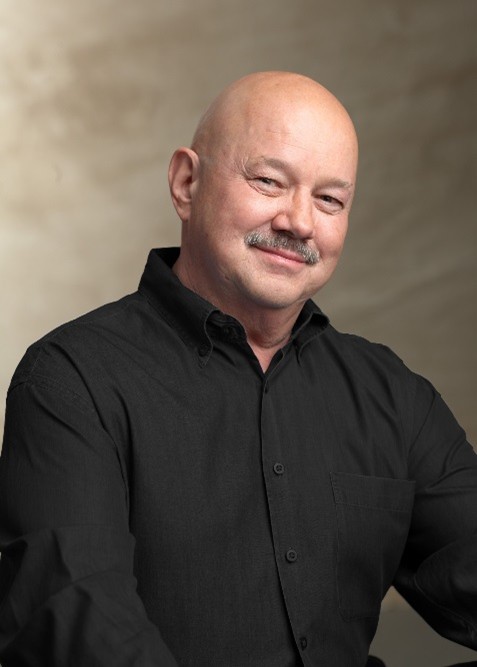
Founder of Baker Concrete Construction
Growing up in a large family of modest means in Oxford, Ohio, Dan worked hard to help support his family. At 15, Dan started working after school and during summers as a laborer for his grandfather, Elmer Baker, in residential masonry. He continued working as a concrete finisher to fund his college education at Miami University (Ohio). At the age of 20, when faced with a cut in wages that he and his brothers could ill-afford, he took a major risk and went into business for himself, convincing his brothers to join him.
In the early days, Dan worked in every imaginable facet of the concrete business, all while juggling his college classes. During most of the day, he worked “in the trenches,” placing and finishing concrete alongside his brothers and co-workers.
Dan spent the remainder of his time building relationships with contractors, personally recruiting all new hires, scheduling the next day’s work and crews, estimating new work, and managing the finances.
While Dan was still earning his Miami University degree, his first company, Baker Concrete Construction, earned a reputation for hard work, customer satisfaction, quality and the ability to meet schedule – allowing initial expansion into the light commercial/light industrial market in the Dayton/Cincinnati area and future growth in project size and scope.
Dan’s commitment to the construction industry is evident by his involvement throughout the years, participating in countless organizations – both in membership and leadership roles. He has served on the boards of Allied Construction …Read More
